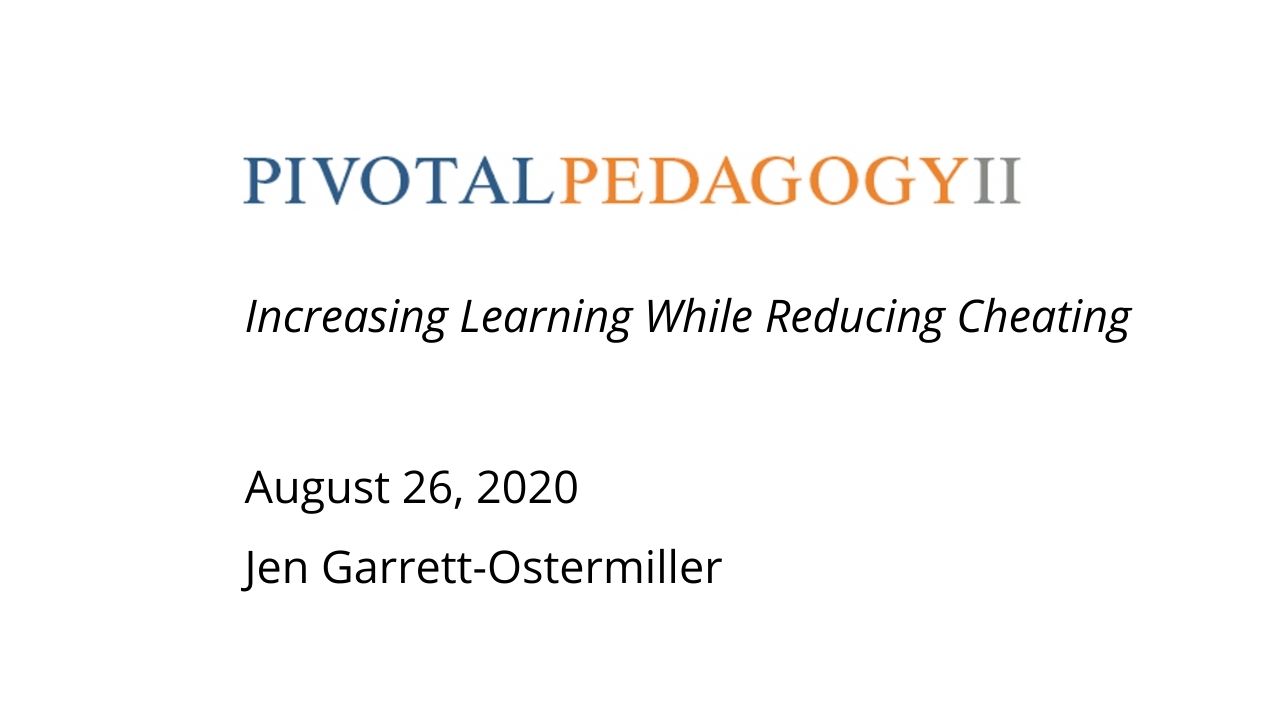Uploaded by ctl on 08/26/2020
Tags:
Pivotal Pedagogy II
academic integrity
cheating
Research shows that cheating behavior is linked, not to individual students, but to the environment in which those students are learning. This is good news, because it means you can actually reduce cheating in your classes. The additional good news is that the ways to decrease academic dishonesty are directly linked to methods for increasing deep learning. We will present ideas about how to develop classes and assignments that motivate students to learn rather than cheat.
During the workshop, you will have the opportunity to begin to redesign an assignment or course to better align with the principles reviewed during the workshop, drawn from James Lang’s book “Cheating Lessons: Learning from Academic Dishonesty.â€


Comments are closed for this media.